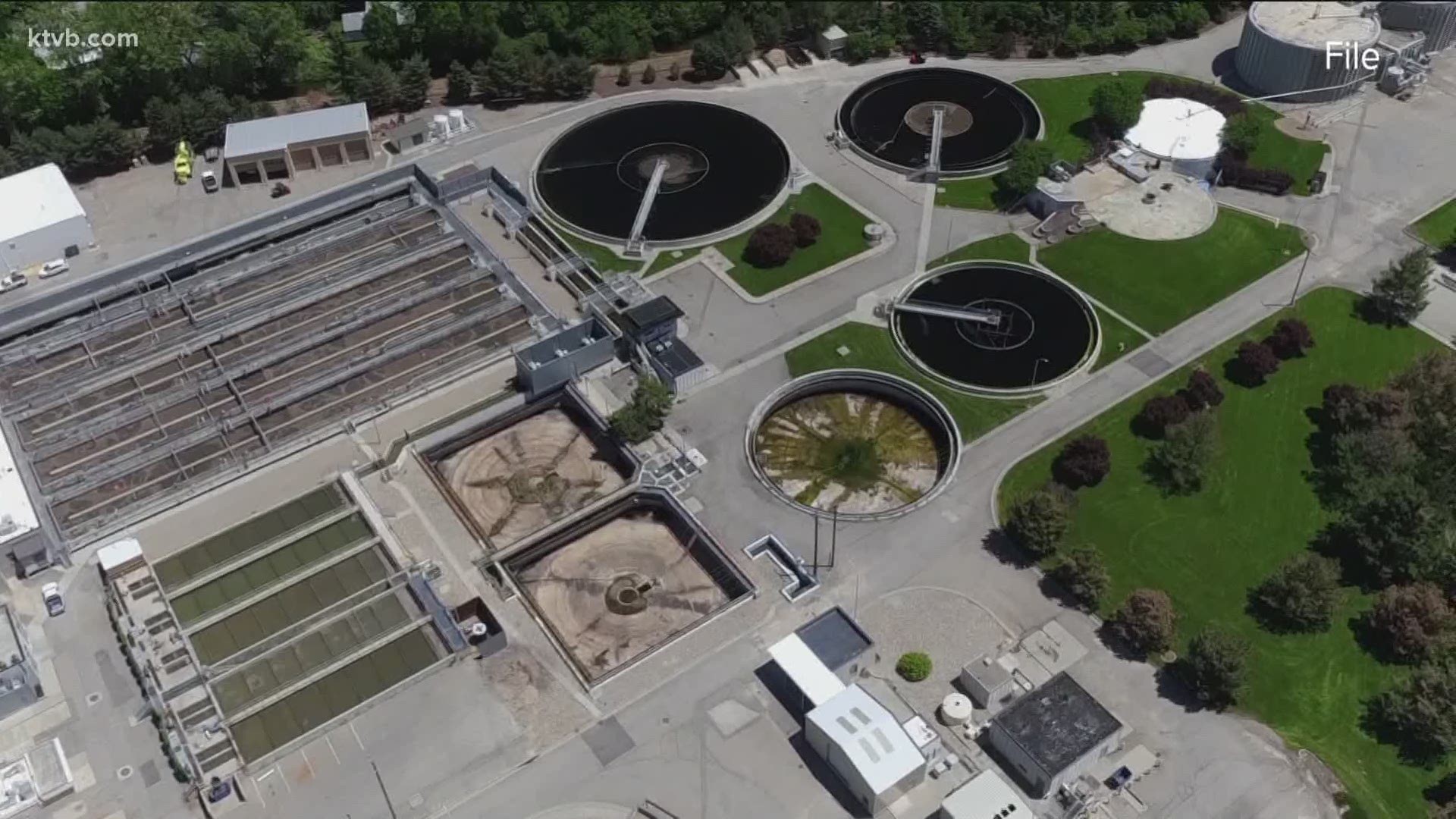BOISE, Idaho — In May, the City of Boise began COVID-19 testing in its wastewater. Now, the city is starting to see results from its first few months of testing.
While city and health officials tell KTVB they are not learning a lot from the wastewater data yet, it is showing some potential trends and will hopefully be a valuable information source in continuing to study the virus.
Originally, wastewater testing was done on a weekly basis but a recent spike in coronavirus cases in Ada County has changed that.
"As we started to see an uptick in cases, we also ramped up the testing at our facilities so, for the past couple of weeks, we’ve been testing every day – or sampling every day," said Haley Falconer, Boise's public works environmental manager.
The samples are taken from both of the city's wastewater facilities, which serve Boise, Eagle and Garden City. The samples are drawn on an automated schedule.
"We have ours set to take a portion of the flow every 15 minutes," Falconer said. "So it takes a volume of sample in proportion to how much flow is going through. So if it's a peak time of day, it'll take more sample."
Samples taken over a 24-hour period are then sent to a lab at the University of Missouri for analysis.
"What it's really testing is the quantity of the virus in our wastewater," said Kyle Patterson, data strategist for the city.
Recently, the city began publishing the wastewater data online.
City Council President Pro Tem Holli Woodings said, based on the data, it does show an increased presence of the virus in the community.
"It is showing a general upward trend [of coronavirus] in our wastewater," she said.
KTVB looked at the data and saw several interesting trends.
From June 20 to June 23, there was a spike in the amount of virus found in the wastewater. A few days later, on June 24 and 25, Ada County also saw a significant jump in confirmed COVID-19 cases.
The same is true a few days later. Data from June 28 shows another spike in wastewater testing. Then June 30 kicks off the start of a multi-day increase in new cases reported in Ada County.
From July 9 to July 11, the amount of COVID-19 reported in the wastewater saw another increase and coincided with Ada County's biggest jump in cases - more than 400 - on July 11.
While it's up to local health officials such as Central District Health to interpret the data and what it might mean, it's another resource to have.
"I would like to say this is really compelling data and it's really serving as a leading indicator but I don't think it's quite there yet," Woodings said.
Patterson said this data will be combined with other data in the future to help health experts try and better understand the virus' spread.
"One of our big next steps, when we get through this resurgence of the virus, is to reflect back, pull all the data together, compare it to other data we have through CDH about when cases are happening, when hospitalizations are happening, do some more rigorous statistical analysis about the relationship between the two," he said.
KTVB reached out to Central District Health about the data. Because of the continued surge in cases in Ada County, CDH staff are busy with tracing and other work for daily cases so no staff currently has the ability to dive into the wastewater data. CDH said the data could potentially be an indicator for communities but they don't know yet.
According to Falconer, each sample costs $175 and the money is coming from the wastewater fund. Patterson said that is considered reimbursable through federal COVID-19 funding.
The city plans to continue testing at least through the end of the year.
Facts not fear: More on coronavirus
See our latest updates in our YouTube playlist:

